Open 24 Hours
Open 24 Hours
Let our team of garage door installation and repair experts make sure that unexpected delays don't get in the way of your family adventures and shared memories, from road trips to other exciting experiences.
Request Service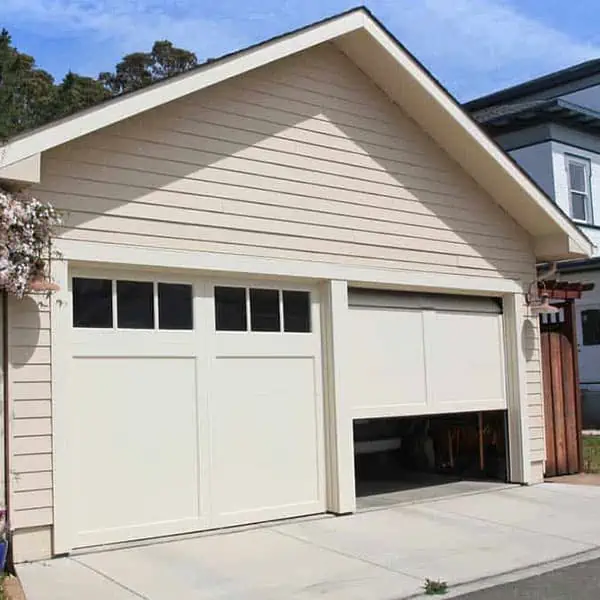
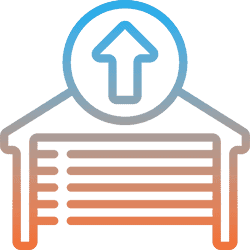
At Rolando's HVAC, our team of experts is ready to diagnose your garage door problems over the phone, providing personalized service without delays.
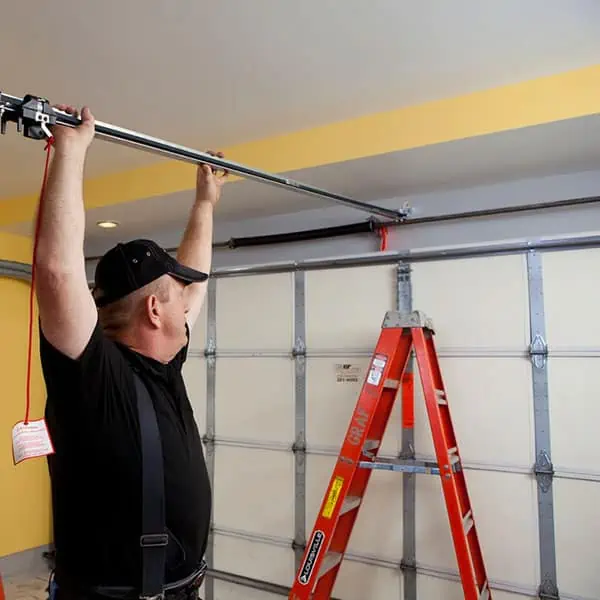

Keep your garage door safe and functional with our Safety Tune-Up service. Our technicians will inspect the door’s balance, safety features, and moving parts to ensure optimal performance and safety.
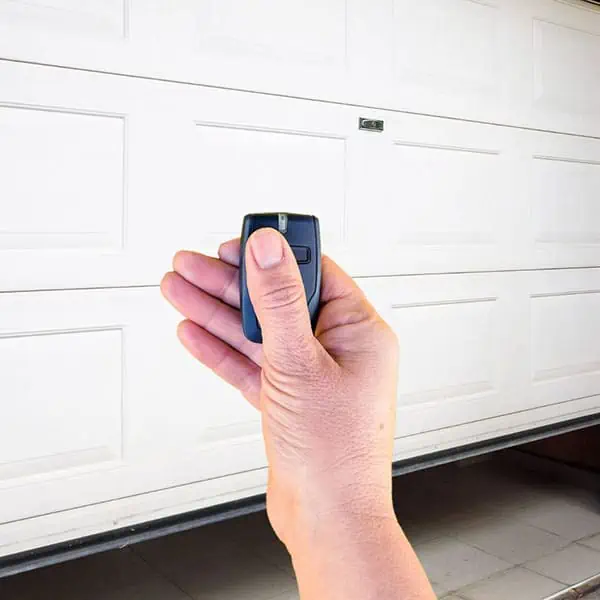

Do you want to install a door with a remote control? Look no further, we have the best technology for your home.
The cost of garage door installation can vary based on local demand for skilled labor, including electricians needed for automatic door setup. On average, the cost of labor for a garage door installation is around $500. If you require wiring for an automatic door, you will need to hire an electrician as well. The labor cost for an electrician typically ranges from $50 to $100 per hour.
Request Service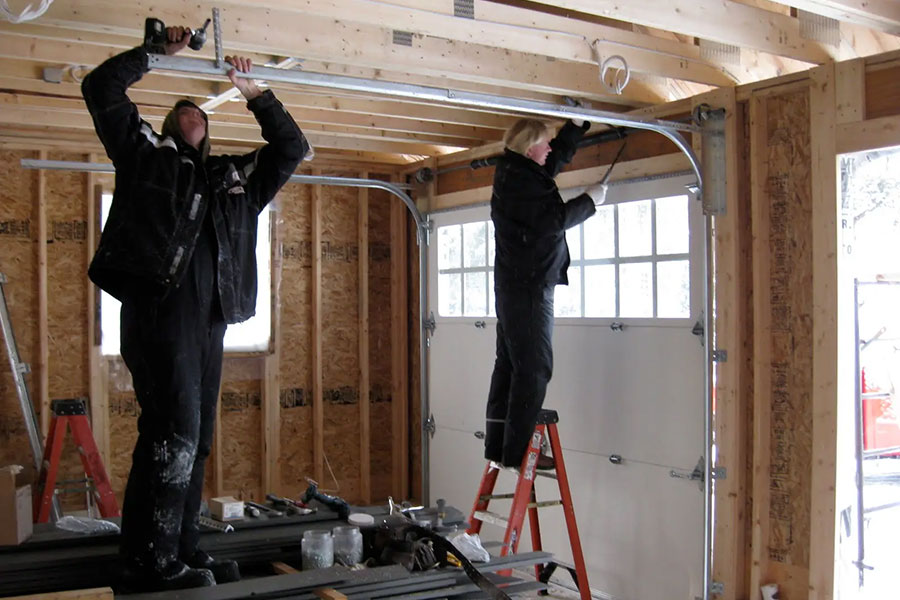
Before choosing a new door, it's important to accurately measure the length and width of your garage door frame. A standard single door typically measures 7’ x 8’ or 7’ x 9’, while a double door usually measures 7’ x 16’. You may also be able to save some money on your installation by reusing the existing roller tracks and hardware, provided they are compatible with the new door. Once you have your new garage door ready for installation, follow these steps to install it:

Removing an old door is heavy lifting, with most weighing between 250 and 450 lbs. It's strongly recommended to have at least one other person assisting when preparing to remove a garage door.

Install the garage door roller tracks following the manufacturer's guidelines. Both tracks should be level and securely fastened.

Mount the door and attach the torsion springs and hardware following the provided instructions. Ensure that all components are correctly connected and securely fastened.

Conduct a thorough test of the door's functionality to ensure proper opening and closing. Make any necessary adjustments for optimal performance.

Because garage doors are so heavy, they come with various safety features. If you're unsure about whether these safety features are working correctly, it's recommended to consult a professional for a thorough inspection.
Installing a garage door usually takes between 8 to 12 hours, providing substantial cost savings if tackled as a DIY project. However, for those unfamiliar with the process, it might take a bit longer. Tasks like disconnecting the spring system and removing the old door may require assistance, but a single person can handle most of the installation.
Understanding and strictly following the necessary safety precautions for garage door removal and installation is crucial. Particularly, safety springs hold significant tension and require careful handling.
Need help with your DIY install or a service call? Rolando's HVAC garage door experts have you covered!
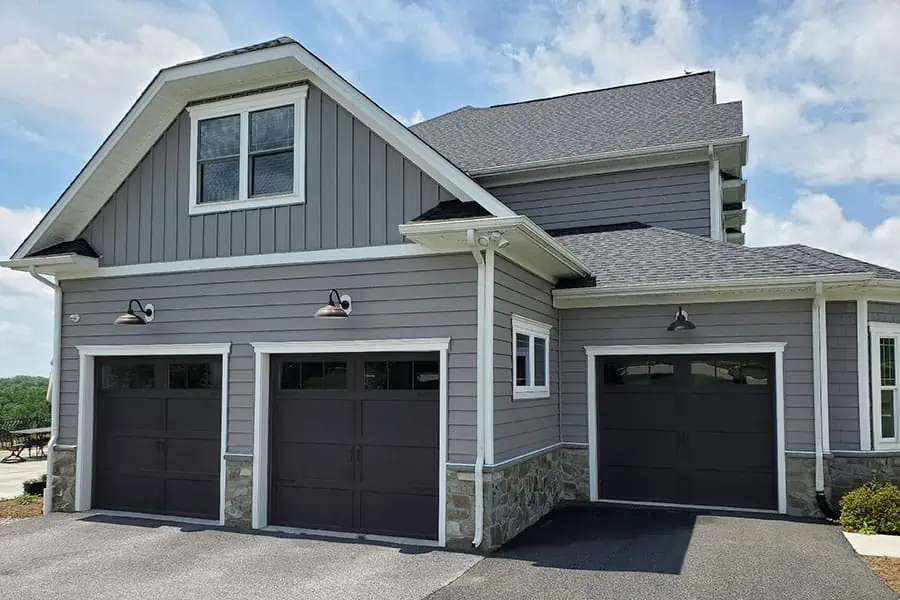
Your garage is one of the first things visitors notice about a home. Upgrading to a new door can significantly improve your home's curb appeal.
Here are the top seven reasons to consider replacing your garage door:

Investing in a new garage door is a wise decision, providing an impressive return on investment (ROI) ranging from 95% to 103%. It not only boosts the value of your home but also stands out as a notable feature, particularly if you're considering selling. A new garage door can substantially enhance the appeal for potential buyers.

Homeowners who take pride in their homes, whether selling or not, recognize the significance of curb appeal. Installing new garage doors is a reliable method to elevate the aesthetics of your home, contributing to an overall enhanced appearance.

Upgrading to a new garage door, with its improved insulation and weather stripping, can save you a lot on heating and cooling costs compared to older models. The enhanced energy efficiency of a new insulated door is a worthwhile investment that, over time, can offset its initial cost.

Malfunctioning garage doors can create an easy entry point for potential intruders. Since many homeowners store valuable belongings in their garage, improving security with a new garage door is a smart way to protect your property.

A garage door that's user-friendly, easily accessible, and well-insulated promotes regular use. Whether you're using the garage for projects, activities, or storage, proper installation and insulation make it a comfortable space regardless of the weather.

With their weight ranging from 250 to 450 pounds, falling door panels can cause severe injuries. Improperly functioning doors also pose a risk of pinching fingers and hands. Prioritizing safety is crucial, and ensuring that garage doors work correctly is essential to prevent accidents and injuries.

Enhancing your home's safety with a new garage door may qualify you for lower insurance premiums. Discuss potential premium reductions with your insurance agent, who can guide you on applicable discounts based on upgraded security features.
Like many things, garage doors have a limited lifespan. On average, a garage door lasts approximately 15 to 30 years. While various types of garage doors may have different lifespans, and proper maintenance can extend their longevity, regular usage and exposure to environmental factors inevitably contribute to wear and tear over time.
The typical cost range for installing a garage door is between $2,700 and $6,000. However, several factors can influence the actual cost of a garage door installation.
Request Service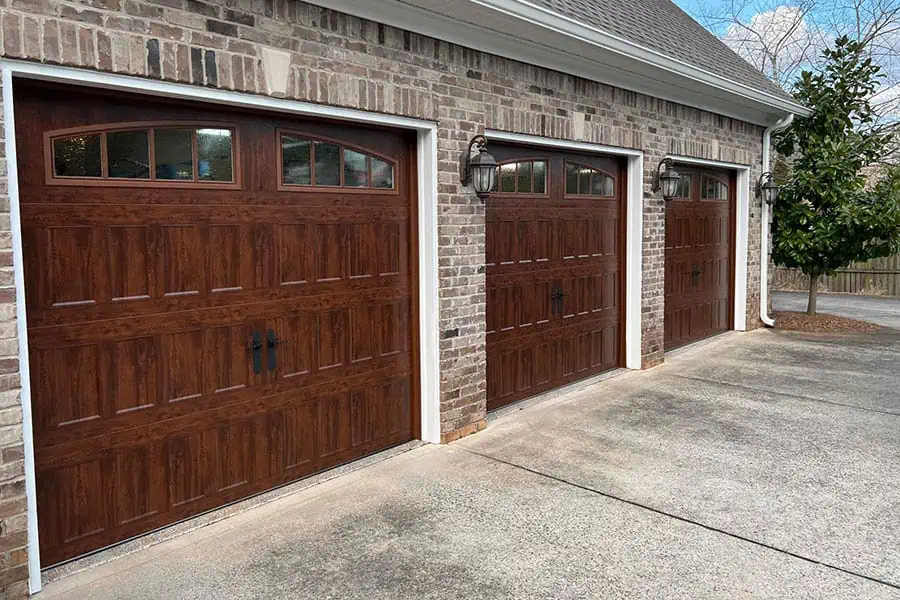
The cost of a garage door can vary significantly based on factors such as style, size, and materials. Before making a decision, it's essential to carefully consider these factors that can influence the overall cost of a garage door installation.
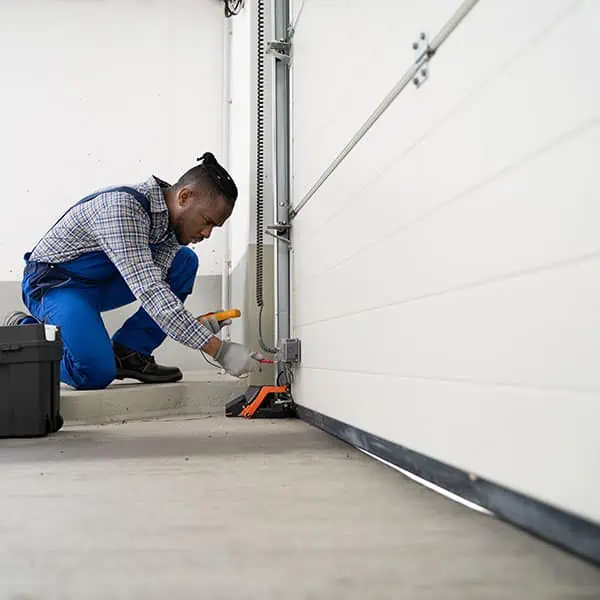

Replacing a garage door averages $1,200, with repairs from $100 to $600. Initial installations are more expensive and vary from $750 to $1,638 based on size and type. At Rolando's HVAC, our garage door experts are ready to assist you in making the right decision for your needs.
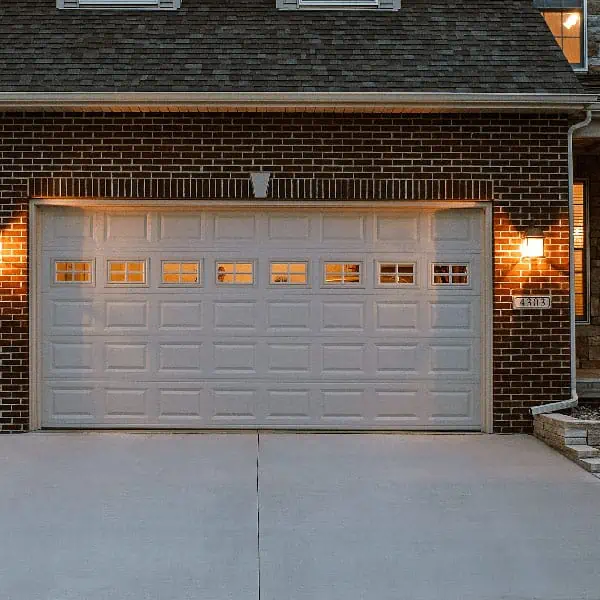

The size of your garage, specifically the number of car bays it has, significantly influences the cost of garage door installations. Garages with one, two, or three-car designs may need single or multiple doors, which can impact the overall installation cost.
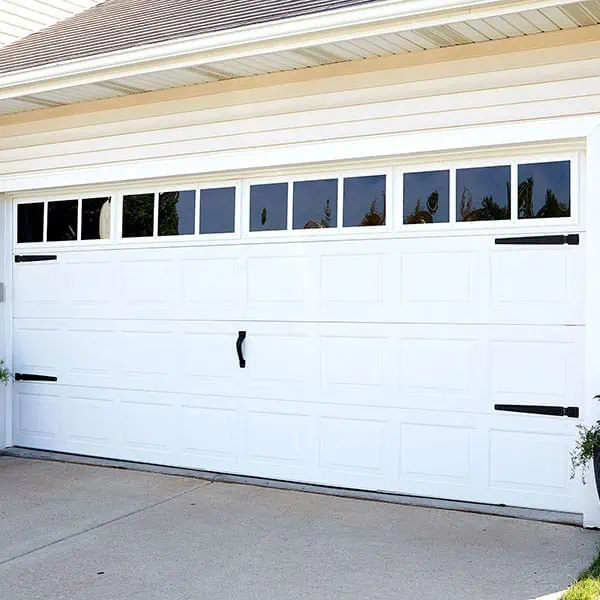

When installing a replacement garage door, consider reusing existing hardware or purchasing a hardware kit for DIY repairs. The cost of a garage door hardware kit varies by door type. At Rolando's HVAC, our garage door experts can help you find the perfect fit for your existing hardware.
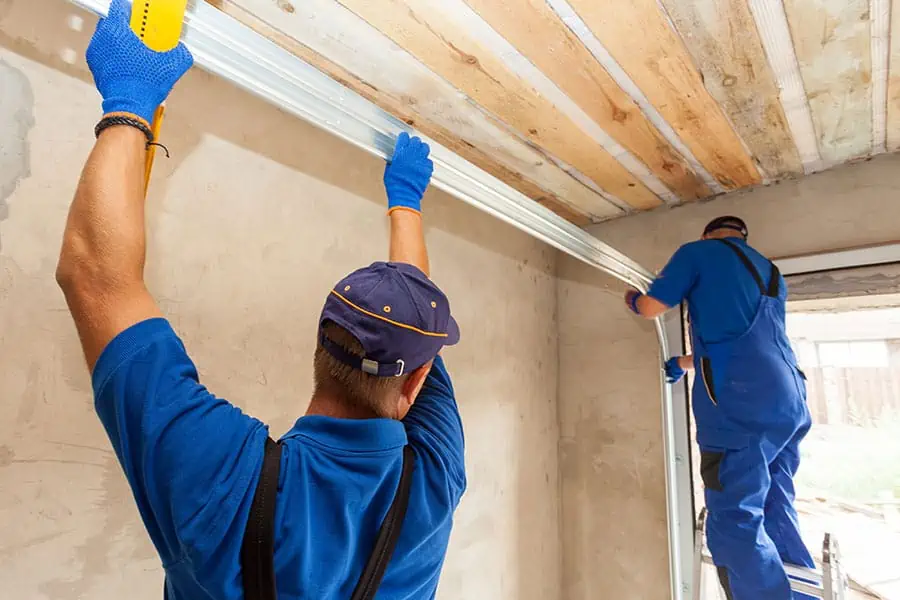
If your garage door keeps breaking down and needs frequent repairs, it might be a sign that it's time for a replacement. To cut down on replacement garage door cost, think about choosing a new one that works with your existing tracks and hardware. This can be a cost-effective solution while ensuring the efficiency of your garage door system. At Rolando's HVAC, our garage door experts can guide you in deciding whether it's time to replace your garage door.
Request ServiceYou don't need rush out and buy a new garage door at the first signs of wear. Noises or issues like creaking hinges or guide rollers might simply be a sign that part of your system needs lubrication or replacement—a generally more cost-effective solution compared to installing a new garage door.
Unless there's a strong dislike for the current garage door, it's wise to get a repair estimate before committing to the expense of a complete replacement. Garage doors are designed to last and can endure anywhere from 15 to 30 years with proper care and regular maintenance.
When choosing a replacement garage door, compatibility with existing hardware is an important factor. However, for first-time installations, exploring different types like sectional, roll-up, side-hinged, and tilt-up doors is essential. Whether you prefer a manual or automatic door, the right choice depends on your preferences and the specific needs of your garage.

Sectional garage doors are the most common style of garage door. Comprising multiple horizontal panels hinged together and mounted on tracks, they easily integrate with automatic door openers. These doors are available in diverse materials such as steel, wood, aluminum, and fiberglass, offering homeowners a range of options to suit their preferences and needs.

Roll-up doors, or rolling garage doors, offer an excellent space-saving solution, making them an ideal choice for garages with limited headspace. While slightly more expensive than sectional garage doors, they are built much the same way and are crafted from materials like wood, aluminum, steel, or glass.

Side-hinged garage doors are experiencing a resurgence in popularity. As their name implies, these doors are hinged at the sides and swinging outward when opened. These doors offer aesthetic appeal and can be crafted from various materials such as wood, steel, and aluminum. Typically sold as a set of two doors, side-hinged doors are smaller and easier to install compared to some other types of garage doors.

Tilt-up garage doors, also called canopy garage doors, are crafted with solid panels. They tilt up entirely when opening and closing, swinging outward toward the driveway. In their open position, these doors rest horizontally against the top of the garage door opening. The unique design, hanging from the top of the frame, makes them suitable for low ceilings. However, it's worth noting that this design may create a snug fit when parking compared to sectional garage doors that roll up on a track.
The time required to install a garage door varies based on factors such as the size and type of the door, as well as the installer's level of DIY experience. On average, it typically takes around 8 to 12 hours to complete a garage door installation.
If you have the right DIY skills, installing a garage door yourself is doable. Just make sure to follow the manufacturer's instructions carefully throughout the process. After finishing the installation, check that all safety features are working as they should. If you ever feel unsure or have concerns during the installation, seeking professional assistance is a smart move to ensure everything is done correctly and safely.
Standard sizes for single garage doors are usually 7 feet by 8 feet or 7 feet by 9 feet, and double doors commonly measure 7 feet by 16 feet. To find the right size for your garage door, accurately measure the length and width of your garage door opening. This measurement will help you choose a garage door that perfectly fits your specific space requirements.
The cost of installing a garage door opener depends on the type of garage door you have. Automatic openers work well with sectional and roll-up garage doors, with installation typically ranging from $220 to $550. Garage door openers usually last around 10 years, and if repairs are necessary, the cost can vary from $50 to $300.
Garage doors can generally last between 15 to 30 years with proper maintenance. It's a good idea to lubricate the moving parts every six months. During these maintenance sessions, take a look at the hardware and rollers, tightening cables and hardware if necessary. Also, think about replacing rollers about every seven years to ensure the garage door continues to operate smoothly. Regular maintenance goes a long way in extending the lifespan and performance of the door.

Rolando’s HVAC is a Heating/Cooling company that specializes in heating, air-conditioning and indoor air quality for the comfort and safety of you.
info@rolandoshvac.com
Open 24 Hours
Rolando’s HVAC - 2024 © All rights reserved